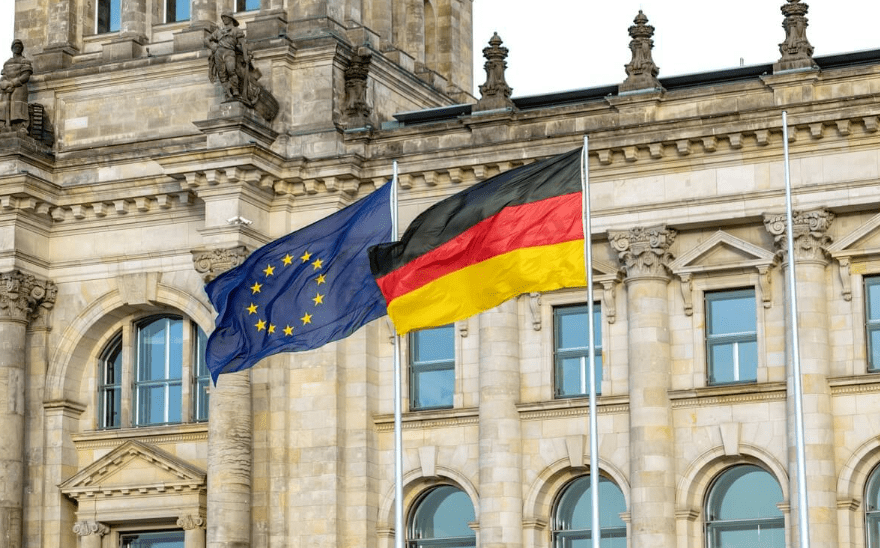Germany EEG Easter Package, “Biggest energy policy reform in decades”
Germany’s EEG Easter Package represents a monumental shift in energy policy, aiming to enhance renewable energy production and reduce carbon emissions. This reform includes significant changes to the Renewable Energy Sources Act (EEG), promoting solar and wind energy while streamlining administrative processes. The goal is to achieve 80% renewable energy in electricity consumption by 2030.
Overview of the EEG Easter Package
The EEG Easter Package is a comprehensive legislative initiative that addresses Germany’s energy transition, known as the Energiewende. It aims to accelerate the deployment of renewable energy sources and improve the overall efficiency of the energy system. This package is regarded as one of the most significant reforms in Germany’s energy policy in recent decades.
1. Key Features of the EEG Easter Package
The EEG Easter Package introduces several critical measures designed to boost renewable energy production:
- Increased Renewable Energy Targets: The package sets ambitious targets for renewable energy, aiming for an 80% share of electricity consumption from renewables by 2030.
- Simplified Approval Processes: Administrative procedures for new renewable energy projects have been streamlined to facilitate quicker implementation.
- Support for Solar Energy: Enhanced incentives for solar power installations, including rooftop solar systems, are included to encourage widespread adoption.
- Wind Energy Expansion: The package emphasizes the need for more onshore and offshore wind farms, with specific targets for installation capacity.
2. Financial Implications
The EEG Easter Package also addresses financial aspects related to renewable energy projects:
- Funding Mechanisms: New funding models are introduced to support the development of renewable technologies.
- Market Integration: The reform aims to integrate renewable energy more effectively into the market, ensuring stability and reliability in supply.
Impact on Germany’s Energy Landscape
The EEG Easter Package is expected to have profound implications for Germany’s energy landscape:
1. Environmental Benefits
By increasing the share of renewables, Germany aims to significantly reduce greenhouse gas emissions, contributing to global climate goals. The transition to cleaner energy sources will also improve air quality and promote sustainability.
2. Economic Growth
The package is anticipated to stimulate economic growth by creating jobs in the renewable energy sector. Investments in green technologies will drive innovation and enhance Germany’s position as a leader in sustainable energy solutions.
3. Energy Security
Enhancing domestic renewable energy production will reduce reliance on fossil fuel imports, improving Germany’s energy security and resilience against global market fluctuations.
Latest News
- The German government has officially approved the EEG Easter Package, marking a significant milestone in its climate strategy.
- Environmental groups have praised the reform, stating it could be a game-changer for achieving climate neutrality by 2045.
- Industry experts predict an influx of investments into renewable technologies as a direct result of these new policies.
Redway Expert Comment
As experts in Lithium LiFePO4 battery technology at Redway Battery, we recognize the importance of Germany’s EEG Easter Package in promoting sustainable energy solutions. This reform not only supports the growth of renewable energy but also aligns with our commitment to providing efficient battery solutions that complement green technologies. We believe that advancements in battery storage will play a crucial role in stabilizing the grid as Germany transitions to a more sustainable future.”
Conclusion
Germany’s EEG Easter Package represents a pivotal moment in its journey towards a sustainable energy future. By setting ambitious targets and simplifying processes for renewable energy projects, this reform positions Germany as a leader in global climate action. As we move forward, collaboration between government, industry, and technology providers will be essential to realize these goals effectively.
FAQs
What are the main components of the Germany EEG Easter Package?
The Germany EEG Easter Package aims for 80% of electricity consumption from renewables by 2030. It includes increased annual installation targets, such as 10 GW of new onshore wind capacity starting in 2025, streamlined permitting processes, and defines renewable energy as a matter of public interest to expedite project approvals.
How will the Germany EEG Easter Package impact renewable energy projects?
The package is expected to significantly boost renewable energy projects by simplifying approval processes and increasing funding. By designating renewable energy as a public interest matter, it aims to reduce bureaucratic delays, facilitating faster development and investment in wind and solar energy initiatives.
What are the expected economic effects of the Germany EEG Easter Package?
The EEG Easter Package is projected to create around 200,000 new jobs in the renewable sector and reduce household electricity costs by approximately €300 annually. It aims to enhance energy security and decrease reliance on fossil fuel imports, contributing positively to the German economy.
How does the Germany EEG Easter Package compare to previous energy reforms?
This package represents a more ambitious approach than prior reforms by setting aggressive targets for renewable energy deployment and emphasizing rapid expansion. It shifts financial support for renewables from consumers to the federal budget, marking a significant change in funding strategy.
What are the key criticisms of the Germany EEG Easter Package?
Critics argue that the ambitious targets may be overly optimistic given existing bureaucratic obstacles and public opposition to new installations. Concerns include potential conflicts between rapid expansion and environmental protection, as well as challenges in gaining local acceptance for large-scale projects.



